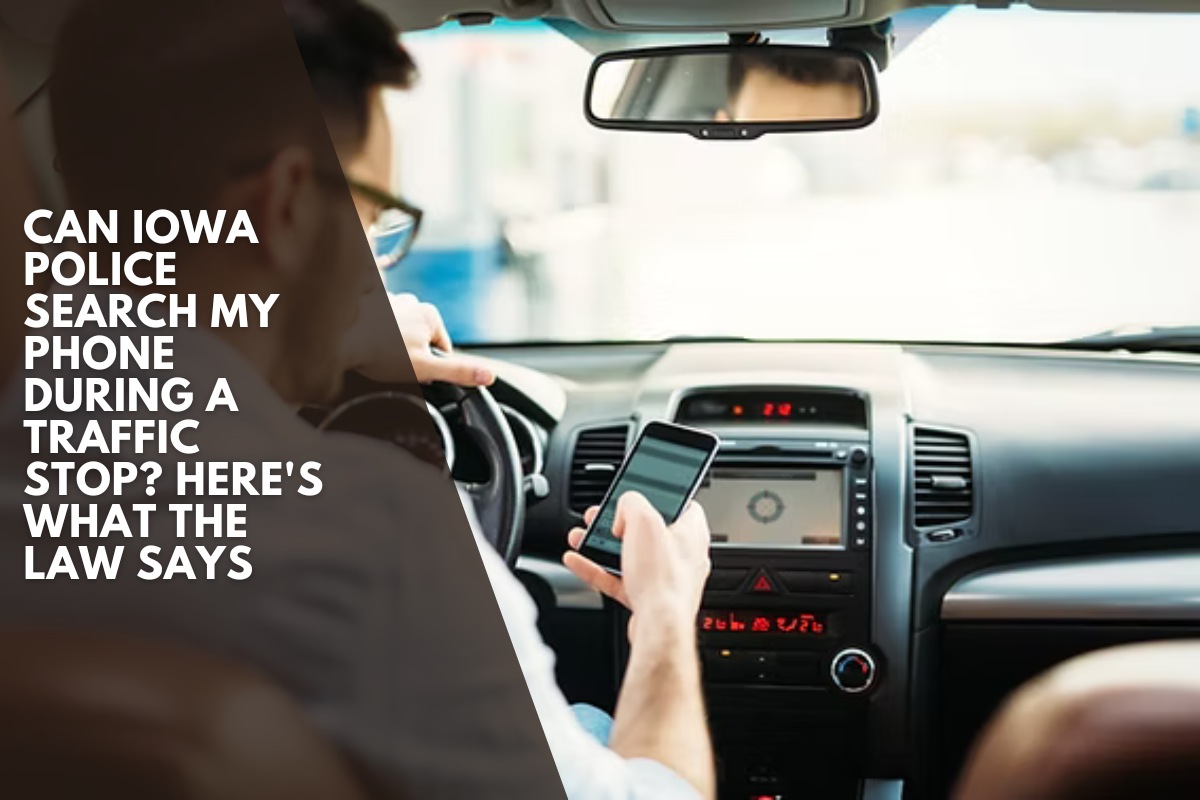Iowa police are governed by both state and federal law when it comes to searching your phone during a traffic stop in 2025, and your privacy rights are clearly defined—even as distracted driving enforcement increases under new hands-free rules.
Hands-Free Law and Traffic Stops
Starting July 1, 2025, Iowa’s new hands-free law makes it illegal for drivers to hold or manually operate their phones or other electronic devices while driving, unless the device is in a true hands-free mode such as via Bluetooth or dashboard mounts.
For the remainder of 2025, law enforcement will issue warnings, with ticketing and $100 fines beginning January 1, 2026. Police can stop you if they observe you handling a phone in violation of this law, and this is considered a primary offense—meaning no other violation is required for a stop.
Can Police Search Your Phone at a Stop?
Despite officers having authority to stop and cite drivers for hands-on phone use, the law does not give police automatic access to search your phone during a routine traffic stop. The Fourth Amendment of the U.S. Constitution and Article I, Section 8 of the Iowa Constitution protect you from unreasonable searches and seizures. In practice:
A warrant is required: Generally, police need a search warrant supported by probable cause to access the contents of your cell phone, including texts, call logs, photos, social media, or other data. This is backed by both U.S. Supreme Court rulings and Iowa state law.
Exception—consent: If you voluntarily hand over your phone and expressly consent to a search, officers can look through your device without a warrant. You have the right to refuse consent.
Other exceptions: In limited “exigent circumstances” (for example, if there’s a genuine and immediate risk of evidence being destroyed, or during a lawful arrest in specific scenarios), police could search without a warrant. But generally, these situations are rare and must meet strict standards.
What if Police Demand Your Phone?
If an officer asks you to hand over your phone or unlock it and you do not give consent, they cannot access your data unless they obtain a warrant from a judge. You’re entitled to politely refuse, and the officer should not retaliate. If you feel pressured or believe your rights are being violated, document events and seek legal advice.
What About Evidence in Plain View?
While police can cite you if they SEE you holding or using your phone while driving, that “plain view” does not extend to searching the digital contents of your device. Courts draw a clear line between seeing a physical object (the phone) and searching its digital information.
Key Points for Iowa Drivers
Police can stop you for any observed hands-on phone use under the 2025 law.
Officers may ask for your phone but need your consent or a warrant to search its digital content.
You have the right to refuse a phone search—do so calmly and clearly.
Any evidence obtained in violation of your rights may be suppressed (excluded from court use).
Racial profiling and improper searches remain a concern; document and report any such incidents.
Always stay informed about your rights, especially as laws evolve.
In sum: Iowa police cannot search your phone during a traffic stop without your permission or a valid search warrant, except under rare emergency situations. Understanding and asserting your rights helps protect your digital privacy under state and federal law.
Sources
[1] https://newswire.ciras.iastate.edu/2025/06/25/new-iowa-hands-free-law-takes-effect-july-1-2025/
[2] https://dps.iowa.gov/press-release/2025-06-25/hands-free-its-law
[3] https://www.iowapublicradio.org/ipr-news/2025-06-27/iowa-hands-free-driving-cellphone-law-what-you-need-to-know
[4] https://www.wkclawfirm.com/2025-no-touch-laws-illinois-iowa-drivers/
[5] https://www.aclu-ia.org/en/problems-creation-primary-offense-distracted-driving











